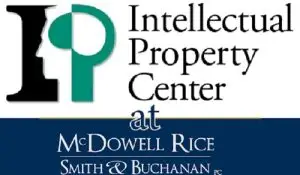
The Digital Millennium Copyright Act (DMCA) has long been a contentious piece of legislation, particularly its anti-circumvention provisions. However, recent changes to these provisions have ushered in a new era for the right to repair movement. interestingly, this change is a win for the McFlurry machine and lovers of McDonald’s ice cream.
The Origins of DMCA Section 1201
Section 1201 of the DMCA, also known as the anti-circumvention clause, was originally added to the Act in 1998 to protect copyrighted digital content from unauthorized access and copying. The clause prohibits the circumvention of technological measures that control access to copyrighted works, as well as the manufacture, distribution, and use of tools designed for such circumvention. A violation of the DMCA is statutorily based and allows for imposing statutory damages under 17 U.S.C 1203 of up to $2,500 per violation. While the intent behind Section 1201 was to combat digital piracy, its broad language has led to unintended consequences, particularly in areas unrelated to copyright protection. Manufacturers have used the anti-circumvention clause to restrict access to software embedded in various products, effectively limiting consumers’ ability to repair or modify their own devices.
The Evolution of DMCA Right to Repair Exemptions
Recognizing the need for balance between copyright protection and consumer rights, the U.S. Copyright Office has periodically reviewed and granted exemptions to Section 1201. The latest round of exemptions, announced in October 2021, significantly expands the DMCA Right to Repair landscape.These new exemptions allow for the circumvention of technological protection measures for the purpose of diagnosis, maintenance, and repair of various devices and equipment. This includes smartphones, home appliances, vehicles, and even medical devices. The scope of these exemptions is broad, covering “computer programs that are contained in and control the functioning of a lawfully acquired device that is primarily designed for use by consumers.”
The New DMCA Right to Repair Exemptions
The new exemptions, which went into effect on October 28, 2024, expand the scope of permissible circumvention for repair purposes. According to the Federal Register document, the exemptions now cover:
- Computer programs that control consumer devices, including motorized land vehicles and medical devices.
- Computer programs that control commercial, industrial, and agricultural equipment.
- Software and data used in personal, commercial, and industrial devices for diagnosis, maintenance, or repair.
These DMCA Right to Repair exemptions mean that consumers and independent repair technicians can now legally circumvent technological protection measures to access software and data necessary for repairing a wide range of devices and equipment.
Impact on Consumers and Independent Repair Shops
The DMCA Right to Repair exemptions have far-reaching implications for both consumers and independent repair businesses:
- Increased repair options: Consumers now have more choices when it comes to repairing their devices, potentially leading to lower repair costs and extended device lifespans.
- Access to diagnostic tools: Independent repair shops can now legally access software and diagnostic tools previously restricted by manufacturers.
- Reduced e-waste: By facilitating repairs, these exemptions could help reduce electronic waste, aligning with environmental sustainability goals.
- Innovation in the repair industry: With legal barriers removed, we may see new tools and techniques developed for device repair.
The McDonald’s Ice Cream Machine and Beyond
A prime example of how the DMCA Right to Repair exemptions can impact everyday life comes from an unexpected source: the McDonald’s McFlurry machine. As reported by Ars Technica, the U.S. Copyright Office’s recent ruling “frees the McFlurry,” allowing for franchises and owners to repair these notoriously unreliable ice cream machines without fear of violating the DMCA. This case highlights how the anti-circumvention clause had been used in areas far removed from copyright protection. The inability to repair these machines due to software locks had become a running joke and a source of frustration for both McDonald’s franchisees and ice cream-loving customers. The new exemptions mean that third-party repair companies can now legally offer their services to fix these machines, potentially increasing their uptime and availability.
Implications for Copyright Infringement Cases
The DMCA Right to Repair exemptions have significant implications for potential copyright infringement cases related to device repair:
- Legal defense: Repair shops and individuals now have a strong legal defense against claims of DMCA violations when performing repairs.
- Burden of proof: Manufacturers will face a higher burden of proof in demonstrating that repair activities infringe on their copyrights.
- Shift in focus: Copyright infringement cases related to repair are likely to focus more on actual copyright violations rather than mere circumvention of access controls.
- Potential for new precedents: As cases involving these exemptions make their way through the courts, new legal precedents may be established, further clarifying the boundaries of the right to repair.
The Importance of Experienced Legal Counsel
While the DMCA Right to Repair exemptions represent a significant victory for consumers and independent repair professionals, the legal landscape surrounding these issues remains complex. An experienced copyright attorney can provide invaluable assistance in several ways:
- Interpreting the scope of the exemptions: The new rules contain specific language about what is and isn’t allowed. A knowledgeable attorney can help you understand whether your particular situation falls within the exemptions.
- Navigating grey areas: There may be situations where it’s unclear whether a particular action is covered by the DMCA Right to Repair exemptions. An experienced lawyer can help you assess the risks and make informed decisions.
- Defending against potential lawsuits: If a manufacturer alleges that your repair activities violate the DMCA, a skilled attorney can help defend your actions under the new exemptions.
- Staying compliant: The exemptions come with certain limitations and requirements. An attorney can help ensure that your repair activities remain within the bounds of the law.
- Keeping up with changes: The Copyright Office reviews and updates these exemptions every three years. An experienced copyright lawyer will stay abreast of any changes and help you adapt your practices accordingly.
Conclusion
The new DMCA Right to Repair exemptions represent a significant shift in how copyright law intersects with the right to repair. These changes open up new possibilities for consumers and independent repair professionals while also creating a more complex legal landscape. As we navigate this new era of DMCA Right to Repair, contact an experienced copyright attorney to help you understand your rights, avoiding legal pitfalls, and defend your actions if challenged. Whether you’re a consumer looking to repair your own devices, an independent repair shop owner, or a manufacturer trying to understand the implications of these new rules, seeking an experienced copyright attorney who can help advise you is crucial. The DMCA world is evolving, and with the right guidance, we can help you navigate this changing landscape.


